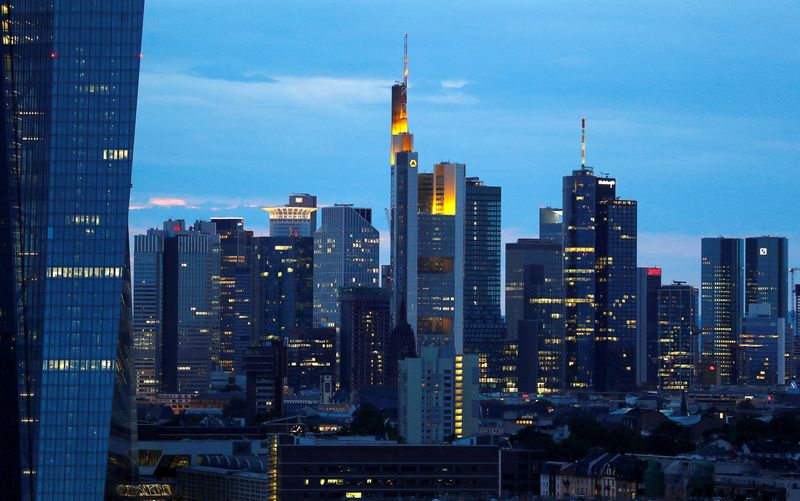LONDON (Reuters) - Euro zone business activity slipped back into contraction last month although the downturn was not as steep as initially thought, according to a survey that also showed inflationary pressures had eased.
HCOB's composite Purchasing Managers' Index for the bloc, compiled by S&P Global and seen as a good gauge of overall economic health, dropped to 49.6 in September from August's 51.0.
That was below the 50 mark separating growth from contraction for the first time since February but was significantly above a preliminary 48.9 estimate.
A PMI covering the euro zone's dominant service industry slid to 51.4 last month from 52.9 but was ahead of the 50.5 flash reading.
"At first glance, the services sector in the euro zone seems to be holding up fairly well. It's still growing, and the slowdown is not too steep just yet," said Cyrus de la Rubia at Hamburg Commercial Bank.
"But when you dig a little deeper and look at individual countries, the picture is not as rosy – except for Spain."
French service providers' business activity slowed after the Olympics effect and in Germany and Italy growth almost hit a wall, earlier data showed.
That was despite firms in the region only raising charges marginally last month. The composite output prices index dropped to 51.5 from 53.0, a low not seen since early 2021.

Inflation in the currency union fell to 1.8% in September, below the European Central Bank's 2% target and reinforcing an already solid case for another interest rate cut this month, official data showed on Tuesday.
Suggesting there will be no imminent turnaround, demand for services declined. The new business index fell below breakeven to an eight-month low of 49.7 from 51.2.